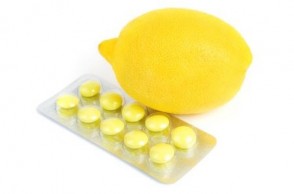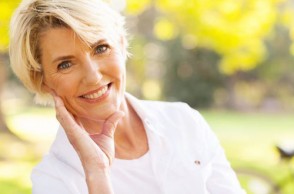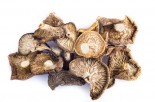Canceled Clients (4762)
Children categories

Train Your Body (438)
The show for fitness buffs or beginners. Expert guest from the American College of Sports Medicine (ACSM) discuss all areas of fitness, nutrition, athletics and sports medicine.
View items...
Staying Well (382)
RadioMD’s “talking” Health A-Z hosted by senior health correspondent, Melanie Cole, MS. Melanie interviews experts in the world of health, wellness, fitness and medicine.
View items...
Healthy Talk w/ Dr. Michael Smith (698)
Integrative physician, Michael A. Smith, MD is committed to providing listeners with the most current health information available.
View items...
Naturally Savvy (899)
Registered Holistic Nutritionist, Andrea Donsky and health expert Lisa Davis discuss their passion for living a natural, healthy lifestyle.
View items...
Eat Right Radio (48)
EatRight Radio, with experts from the Academy of Nutrition and Dietetics, discusses food and nutrition topics, healthy weight, allergies and health conditions, healthy aging, food safety and so much more. Give us 10-minutes and we'll give you the important information and expert advice from registered dietitian nutritionists to help you eat right, feel better, and live a healthier life. Hosted by Melanie Cole, MS.
View items...
Sharecare Radio (235)
Sharecare Radio, hosted by Sharecare’s own Dr. Darria Long Gillespie, SVP of Clinical Strategy at Sharecare, will appear live every Tuesday from 12 to 1 p.m. EST on RadioMD. Dr. Darria will break down the top health news of the week, pull in experts from around the country on a wide array of health topics and answer listeners’ live questions on all things health.
View items...
Wellness for Life (455)
On Wellness For Life Radio you will learn practical, easy-to implement tips to improve your life and start feeling better — the natural way.
View items...
The Wizard of Eyes (163)
Dr. Robert Abel Jr. talks about many of the important and unrecognized parts of our visual system which we so often take for granted. The show covers the usual common ocular disorders with an East/West approach to both prevention and therapy. The eye-brain connection is presented with information about memory retention, Alzheimer's, the myopia epidemic, and many more subjects. Dr. Abel discusses how the eye and vision are connected with remote parts of the body including your gut flora, musculoskeletal system, blood pressure, drugs and lifestyle. practical and simple health tips.
View items...
Code Delicious with Dr. Mike (135)
Code Delicious with Dr. Mike breaks all the rules. Unabashedly confronting the questions, concerns and conundrums that continually confuse both public and experts alike; Dr. Mike takes us on a tasty trip of inquiry.
View items...
CLEAN Food Network (98)
This show is a call to action for all the clean eating revolutionaries that care about their health and how and what they eat. Non-GMO, natural, organic . . . food the way nature intended. The clean food movement is huge and is growing exponentially. This companion program talks to experts in food preparation, healthcare, celebrities, and even those companies that care enough to provide the best, wholesome, organic foods and groceries.
View items...
Talk Healthy Today (213)
Looking to create your best self? Whether it’s good-for-you lifestyle hacks, smarter ways to supplement, or tasty tips to fuel optimal health, Talk Healthy Today brings you the latest research, tools, and common sense tips you need to get and stay healthy... starting today!
View items...
Be a Doer (17)
Be A Doer features master coach and TV personality John Abdo as he shares health and fitness tips aimed at getting you in shape – and keeping you there!
View items...The Power of Probiotics (3)
Probiotics is a major global industry. But like any industry, it had to have a beginning. Natasha Trenev is the daughter of an Eastern European family where the manufacturing of yogurt was a generational business. When Natasha emigrated to the US in the 1960’s, she brought with her 750 years of family experience with probiotics – and introduced the science (and the term itself) to her new country. Today, Natasha’s California-based Natren, Inc. is the recognized pioneer in probiotics and company founder Natasha Trenev has earned recognition as the Mother of Probiotics. Her more than 50 years of work in natural health is at the core of the unparalleled success of her company – and you will benefit from her depth of expertise in each and every episode of THE POWER OF PROBIOTICS.
Probiotics are live microrganisms that are commonly referred to as ‘friendly,’ ‘good’ or ‘healthy’ bacteria that function to help maintain the natural balance of organisms in the intestine. Throughout Natasha’s extensive work in the field of probiotics, she has always been amazed by how nature provides the very ‘good’ bacteria that can help overpower ‘bad’ bacteria to keep our digestive tracts functioning at peak performance. Properly cultivating friendly bacteria and ensuring their potency is at the core of the Natren Process. Natren is cited – by retailers, by the medical community and by consumers – as the best probiotic supplement available. Only Natren carefully chooses its probiotic cultures, formulates and manufactures its industry standard probiotics in its own plant and utilizes a specially-formulated oil matrix to protect probiotics bacteria to survive until they reach their destination in the upper small intestine. This is why only Natren is the most trusted probiotic supplement on the market. Truly, where other probiotic supplements promise – Natren Delivers.
To learn more about how probiotics can benefit your health, we are proud to introduce you to THE POWER OF PROBIOTICS with The Mother of Probiotics, Natasha Trenev.

Your Brain Health (24)
Noted Los Angeles-based neuroscientist and media personality Dr. Kristen Willeumier launches Your Brain Health with Dr. Kristen Willeumier, a podcast series that explores the latest news and information in the burgeoning science of brain health.
View items...Additional Info
- Segment Number 4
- Audio File healthy_talk/1519ht1d.mp3
- Organization Life Extension
- Guest Website Healthy Talk MD
-
Transcription
RadioMD Presents: Healthy Talk | Original Air Date: May 4, 2015
Host: Michael Smith, MD
RadioMD. It's time to ask Dr. Mike. Do you have a question about your health? Dr. Mike can answer your questions. Just email AskDrMikeSmith@RadioMD.com or call now: 877-711-5211. The lines are open.
DR. MIKE: That's AskDrMikeSmith@RadioMD.com. If you like this part of the show like I do, send me more questions. You can be as vague, detailed, lengthy, whatever as you want. It can be a current event, t can be about your own health, whatever, you guys want. I do enjoy this part of the show. So, my first question is from Bart Taylor that name sounds familiar hmm—I think Bart sent me some questions before.
"Hi Dr. Smith! What is your opinion on the optimal dose of Vitamin C in adults?"
And Bart so graciously included in his email a study. As a matter of fact, I've seen this study. I reviewed this study about a year ago it's from Critical Reviews in Food Science and Nutrition 2012 the title is Authors Perspective: What is the Optimum Intake of Vitamin C in Humans? And in this study, they concluded about 200 mg is an optimal dose but keep in mind, the daily recommended dose of Vitamin C is about 50-100 mg depending on who you read. Somewhere between 50-100 mg of Vitamin C everyday will prevent scurvy and that, by the way, is exactly what the recommended daily intake or recommended daily allowance (they're basically the same thing) that's what they were designed to do: to come up with a dose of vitamins and minerals that will prevent deficiencies, diseases of deficiencies.
So, that's exactly what the RDI and RDA do and that's way low. If you want to prevent scurvy and that's all you want to do with Vitamin C, great! Follow the RDA. If you want to do more with Vitamin C, if you want to benefit from Vitamin C in terms of heart health, brain health, immune health, anti-cancer properties, you definitely need more than the RDA or the RDI. So, this study coming out of Oregon State University, they looked at different trials. They looked at different sub-culture studies.
They said something really interesting. Bart, in this study, in the abstract, at least, they said, "Here we argue that Phase 3 randomized controlled trials, RCT's, designed principally to test the safety and efficacy of pharmaceutical drugs are ill-suited to assess the health benefits of essential nutrients." Yes, yes, yes.
"And the currently available scientific evidence is sufficient to determine the optimum intake of Vitamin C in humans."
What happens, Bart, is we get a lot of situations where when it comes to dosing, specifically, what I call "ideal dosing" or what you refer to as optimal dosing, the kickback that we get from conventional doctors and research is that there's not enough dosing trials or even randomized controlled trials in vitamins and nutrients to really come up with a good dose range--the low end and the high end. And there is some truth in that that there's not enough randomized controlled trials in vitamins and minerals but the point that these researchers make that I really like is that it may not even be the best way to study vitamins anyway. Randomized controlled trials are looking at one group taking the test material and the other group placebo and because it's a pharmaceutical chemical drug. There's usually a quick effect and you can measure that effect and see a difference quite quickly.
Is that really a fair way to test vitamins and nutrients? And I'm so happy to see the authors in this study recognize that that if you're looking for pharmaceutical type studies to decide what a dose of Vitamin C should be, well, maybe that's the problem. Maybe we're not testing these nutrients, these what are called micronutrients in the right way. So, I like that I just wanted to bring that in there. So, they say 200 mg, Bart. Yeah, I like that but I think it's a little low, still.
My research showed that the dose range, the ideal dose range, for Vitamin C is 500 mg to 2000 mg. The Life Extension Foundation confirmed that and I think the basic multivitamin that the Foundation offers is called the Two-Per-Day doses it at 500 mg. So, at least at the lower end of that optimal range but 200--that's about double the RDA.
I think, again, here's some good research looking at different types of trials coming up with a much higher dose than the RDA for optimal Vitamin C intake. So, to answer your question, what's my opinion? I like this study. I think 200 is a good start. I think it's still too low. I think the optimal range for Vitamin C, Bart, is between 500 and 2000 mg.
Question number two: "My husband was diagnosed with melanoma a few months ago. They are going to remove it but they want to follow up with a cancer vaccine."
Ah, very interesting.
"I've done my research but I am still unclear what this is. Can you help explain it? Thanks, Pam."
Yes. Okay, Pam so, you know, in the same way that a regular vaccine works, like a flu vaccine, a cancer vaccine stimulates the immune response to kind of be primed and ready to fight that particular cancer. So, ultimately, what they're going to do for your husband is they're going to remove the melanoma with what are called clear margins and then they're going to give, and this does make sense to me because I'm pretty sure I'm not up to date on current cancer vaccines, but melanoma there is a cancer melanoma vaccine. There is. So, once they've cut out the melanoma, they then give him this melanoma vaccine and what they're trying to do is they're trying to get his own immune system to respond to this vaccine, produce activated T-cells and B-cells against the melanoma so he can be more protected from future development and future spread.
And so that's what they're doing. That's what it is. A cancer vaccine is basically immunotherapy. It's used in the immune system to fight the cancer so they remove it but knowing that melanomas are aggressive, they do spread. Melanomas are very metastatic. They spread to other organs very readily so they have to remove it, they have to dig it all out. They have to make sure that there's absolutely clear margins but then they do something to protect from that potential spread because you can't get every single cell. There's just no such thing as a perfect removal of a tumor. And so, they've developed these vaccines to stimulate the immune response so that he can be protected down the line.
So, I think it's great. I'm not sure what else I should say about it, Pam, but cancer vaccines and immunotherapy I really think a lot of research has been going on in this field for at least maybe the past 5 or 6 years and we're starting to develop more cancer vaccines.
We're starting to develop more immunotherapy approaches and I think it's awesome because the immune system is so incredible, Pam. Your husband's immune system is one of his best defenses against having a problem with this melanoma down the line. It's just we have to help it a little bit. We have to help his immune system kind of be a little more aggressive when it comes to this melanoma. Be a little more activated, be a little more active about it, a little proactive. That's what the cancer vaccine does. I think that's great. I hope that helped, Pam.
Okay next question. I think I have time for one more.
"What is..."
Okay, listen. This question rings home to me because I'm a frequent traveler myself. I travel all over the country with the Foundation.
"What's your take on the airport scanner? Should frequent flyers be concerned?"
By the way, too, I've noticed the use of the scanners has pretty much gone up significantly. I mean, I remember it used to be half the time I'd go through the more traditional metal detector but now I don't think I've gone through a metal detector at all. In the past couple years, it's been the scanners every time.
I'm not too concerned. I'm a radiologist so I'm not too concerned about the radiation from the scanners. If you are, though, you could just do some supplements. You know, cruciferous vegetables, anti-oxidants, sulfur-based compounds are the best radio protective ones we have like MSM, Methylsulfonylmethane, like 1000 mg of that before you go travelling. That protects from the scanner and from being up high in the air. I mean, maybe just do some supplements. I'm not concerned about them though.
This is Healthy Talk on RadioMD.
I'm Dr. Mike. Stay well. - Length (mins) 10
- Waiver Received No
- Internal Notes NO GUEST
- Host Mike Smith, MD
Additional Info
- Segment Number 1
- Audio File healthy_talk/1519ht1a.mp3
- Organization Life Extension
- Guest Website Healthy Talk MD
-
Transcription
RadioMD Presents: Healthy Talk | Original Air Date: May 4, 2015
Host: Michael Smith, MD
Anti-aging and disease prevention radio is right here on RadioMD. Here's author, blogger, lecturer and national medical media personality, Dr. Michael Smith, MD, with Healthy Talk.
DR MIKE: So, there is a cellular enzyme that I want you to reactivate. A cell-based enzyme I want you to reactivate.
Now, when I say enzyme I think the first thing many people think are digestive enzymes or in some cases proteases, the enzymes that break down inflammatory proteins. But that's not what I'm talking about here. I'm not talking about a food based-enzyme or a digestive enzyme, I'm talking about a cell based enzyme and this enzyme is so critical to how your body and how your cell, in particular, manages energy that it's critical we keep it at a high functioning level throughout our life.
So, let's just back up for a moment and let's talk about why enzymes are so important because I think you're going to start seeing kind of a resurgence of enzyme research. And I say resurgence because it was maybe about a decade or so ago that there was a lot of research looking into different enzymes in the body, particularly enzymes involved in cell energy production and how we could reactivate them, supply them, replenish them, those kinds of things. And that research kind of fell out and we made way for the CoQ10 research and the Omega-3 research which was awesome and necessary but now we're starting, as I said, to see a resurgence in enzyme research and it's a good thing.
So, what is an enzyme? What does an enzyme do for us? And, again, I'm not talking to digestive enzymes. I'm talking about compounds, small molecular compounds in your body, that, really, without them the basic life processes wouldn't occur. You know, we're basically chemical factories. The beating of your heart, for instance, is managed by chemistry. Substance A combines with Substance B that converts into Substance C and you get some sort of effect.
That's the basics of life right there: A+B=C, chemistry; however, in order for that reaction to occur, for that chemistry to occur, Substance A has to get together with Substance B. There has to be the right temperature, the right pH, they have to be in close vicinity and if all of that comes together in a lucky way, you might actually make C and get the effect you want.
Well, that's where enzymes come in. Enzymes help Substance A to find Substance B. Enzymes help the body or the cell to reach the right pH and temperature, so that you can make Substance C and get the effect you want in a physiological time frame so that you can function and have life. Without enzymes, eventually that chemical reaction would occur. You might get a beat of a cardiac muscle cell about once every ten years, if you didn't have enzymes. Eventually the chemistry would happen but it would just take so long in terms of what we call physiological time to the point where the reaction wouldn't really be able to support life.
So enzymes are used by the cell to accelerate, to initiate, propagate and move forward the chemistry of the cell in a much more physiological, timely manner so that you can live. And one of those key enzymes is called AMPK: adenosine monophosphate protein activated kinase.
We'll just call it AMPK. It's an incredibly important enzyme in the cell. It's sometimes referred to as the master energy switch and all that really means is AMPK helps to coordinate cell energy production pathways. When AMPK is activated at a high level, your cells are able to manage energy better--both the production of energy and the storage of energy.
The cell is just more efficient at everything that has to do with energy. Sugars, fat, protein, ATP, all those words you've heard me talk about before, when AMPK is activated to a good optimal level, your cell manages all that stuff well and if a cell can manage energy and how it brings the precursors to energy in, how it actually takes those precursors and runs them through these pathways and how you end up with ATP and if you have too much sugar and fat and protein coming in, how you can store them--all of that is the management of energy. When the cell can do that, when the cell can manage that whole process well in a healthy way, the cell is healthy, the tissue is healthy, the organ is healthy and the organism--you and me-- we're healthy. And one of the key enzymes in that whole process is called AMPK.
Just like everything else as you get older, you lose hormones, you lose antioxidants, everything drops, skin drops. Everything drops, wrinkles form. Well, same thing here AMPK drops in function and in activity as you get older. I don't have a number for it but we just know that when a cell becomes less efficient at managing energy, when the cell becomes engorged with fat, when the cell is no longer able to make a decent amount of ATP so that it can function normal--when all that stuff happens, it's often directly coordinated to a low level of AMPK activity: adenosine monophosphate protein kinase.
Now, I'm going to give you just a list of things these are the dangers of reduced AMPK activity and this is all research based. When there's a low level of AMPK you're going to get an increase in belly fat. That's because cells are storing more fat instead of burning fat. One of the true signs of cell dysfunction is when cells engorge themselves with fat--not just fat cell--all cells can begin to form fat droplets and stuff if they're not burning that fat as energy. So, fat cells get bigger. Even non-fat cells start to engorge with fat as well. The liver becomes what's called non-alcoholic fatty liver. All of that kind of stuff can happen when you have low AMPK because you're not managing energy. Number two, chronic inflammation goes up.
Reduced levels of AMPK elevates blood sugar because you're not managing sugar; you're not managing energy. Once you have that sugar issue, now you have the next thing the fourth thing: insulin resistance problems. Insulin is that hormone that drives sugar inside the cell but if your cell is having a hard time managing sugar you tend to overproduce insulin to try to overcome that problem with sugar and, eventually, the cells become very insensitive, resistant, to insulin. High cholesterol and high triglycerides can happen when you have low AMPK. You lose the powerhouses. You don't have as many mitochondria when AMPK is not activated.
So, all of these things have been associated with reduced AMPK activity. However, when you reactivate it to younger levels, more youthful levels, there's evidence that we can extend lifespan by as much as 20-30%, improve glucose uptake in cells, lower blood sugar, improve insulin sensitivity, reduce blood triglycerides—basically, everything I've just covered the dangers of reduced AMPK activity reverse when you reactivate it. So, AMPK is a cell enzyme and this is not about digestion. This is a cell enzyme, AMPK, that is the master regulating switch for managing cell energy.
From the precursors, to the production, to the storage and that is so critical to how healthy a cell is. How can you reactivate it? Well, you can work out really, really, really hard like triathlon level. You can restrict calories to about 30-40%, which most of us just can't do. No one is really going to do the first two.
So, really the best way to do it is with two plant-based extracts: one is called Gynostemma pentaphyllum and the other one is called Rose canina. That's also where we get rose hips from. There's good evidence in the literature that Gynostemma pentaphyllum in combination with rose hips or Rose canina will reactivate AMPK, that important cell enzyme. Go check it out at LifeExtension.com.
This is Healthy Talk on RadioMD.
I'm Dr. Mike. Stay well. - Length (mins) 10
- Waiver Received No
- Internal Notes NO GUEST
- Host Mike Smith, MD
Additional Info
- Segment Number 4
- Audio File sharecare/1519sc2d.mp3
- Featured Speaker Eddie Hernandez, Chef
- Guest Website Taqueria del Sol
- Guest Facebook Account https://www.facebook.com/TaqueriadelSolGeorgia?fref=ts
- Guest Twitter Account @TaqueriadelSol
-
Guest Bio
 Taqueria del Sol offers innovative and cross-cultural menu selections in a relaxed, approachable atmosphere. Owners Mike Klank and Chef Eddie Hernandez have been nominated twice for the James Beard Foundation Award for Outstanding Restaurateurs in 2011 and 2012. Chef Hernandez uses only the freshest of ingredients, and spices up his menu with weekly taco and seafood specials. Taqueria del Sol has locations in Atlanta and Athens, GA.
Taqueria del Sol offers innovative and cross-cultural menu selections in a relaxed, approachable atmosphere. Owners Mike Klank and Chef Eddie Hernandez have been nominated twice for the James Beard Foundation Award for Outstanding Restaurateurs in 2011 and 2012. Chef Hernandez uses only the freshest of ingredients, and spices up his menu with weekly taco and seafood specials. Taqueria del Sol has locations in Atlanta and Athens, GA.
- Length (mins) 10
- Waiver Received No
- Host Darria Long Gillespie, MD, MBA
Additional Info
- Segment Number 3
- Audio File sharecare/1519sc2c.mp3
- Featured Speaker Clare Schexnyder, CEO of Oh Baby! Fitness
- Guest Website Oh Baby! Fitness
- Guest Facebook Account https://www.facebook.com/pages/Oh-Baby-Fitness/121236510474
- Guest Twitter Account @ohbabyfitness
-
Guest Bio
 Clare Schexnyder is the founder and CEO of Oh Baby! Fitness. Oh Baby! Fitness offers the widest variety of pregnancy and mom & baby exercise classes in the USA. Moms can take Pilates, yoga, water aerobics or toning during their pregnancy. Then, after she has her baby, she can take all the same classes and baby is included in the workout. Oh Baby! expanded nationally through a licensing program and classes are now offered in 15 states. Join today to get fit, bond with baby and make new friends.
Clare Schexnyder is the founder and CEO of Oh Baby! Fitness. Oh Baby! Fitness offers the widest variety of pregnancy and mom & baby exercise classes in the USA. Moms can take Pilates, yoga, water aerobics or toning during their pregnancy. Then, after she has her baby, she can take all the same classes and baby is included in the workout. Oh Baby! expanded nationally through a licensing program and classes are now offered in 15 states. Join today to get fit, bond with baby and make new friends.
- Length (mins) 10
- Waiver Received No
- Host Darria Long Gillespie, MD, MBA
Additional Info
- Segment Number 2
- Audio File sharecare/1519sc2b.mp3
- Featured Speaker Elizabeth Sullivan, MFT
- Guest Facebook Account https://www.facebook.com/elizabethsullivanpsychotherapy?ref=hl
- Guest Twitter Account @NurtureMom
-
Guest Bio
 Elizabeth Sullivan is a psychotherapist in private practice in downtown San Francisco. She specializes in helping individuals and couples transform their anxiety, depression, and other troubles, and feel better. She has written and lectured on parenting topics and other psychological issues. Elizabeth has trained at the Intuitive Listening Program of AIWP, at the California Institute for Integral Studies, and at the San Francisco Center for Psychotherapy. She is a mother of two and has been together with her partner for over 23 years.
Elizabeth Sullivan is a psychotherapist in private practice in downtown San Francisco. She specializes in helping individuals and couples transform their anxiety, depression, and other troubles, and feel better. She has written and lectured on parenting topics and other psychological issues. Elizabeth has trained at the Intuitive Listening Program of AIWP, at the California Institute for Integral Studies, and at the San Francisco Center for Psychotherapy. She is a mother of two and has been together with her partner for over 23 years.
- Length (mins) 10
- Waiver Received No
- Host Darria Long Gillespie, MD, MBA
Additional Info
- Segment Number 5
- Audio File wellness_for_life/1518wl5e.mp3
- Featured Speaker Susanne Bennett, DC
-
Transcription
RadioMD Presents: Wellness for Life Radio | Original Air Date: May 1, 2015
Host: Susanne Bennett, DC
It is time to feel better with help from Dr. Susanne Bennett. Allergies, nutrition, ultimate wellness are discussed right here right now. It is wellness for life radio on Radio MD. Here is your host Dr. Susanne.
DR SUSANNE: You probably don’t know this about me but I get so excited in the Spring time because it is when I start planning my next big summer vacation. Yay! I just love to travel to other parts of the world where I can jump into the ocean to swim, snorkel or stand-up paddle. I’ve actually lived near the ocean my entire life from Korea to Monterey and now the Pacific Palisades, and I have a deep, deep love and respect for the ocean and marine life. In fact, my family and close friends call me the “sensitive voyager”, not only because I have a strict rule to explore beaches and oceans wherever I go but also because of the way I travel. I am very organized and prepared with all of my food, supplements and health travel paraphernalia.
My philosophy is that, you know what? I want to have the best experience best possible experience at every moment of my life, including during my travels and if it takes a little more by carrying extra bags of goodies to do that then I am all for it. Preparation is key for healthy travelling whether it’s for business trips or for a fun-filled adventure. On Nature’s Secrets today, I will share my top healthy travel essentials for you and your family so you can maintain your energy, your mental focus, be free of allergies and avoid any potential health disasters that are so common for people when they travel.
Number one. Let’s pack a healthy travel paraphernalia kit for you. What does that include? You’ve got to have those daily essential supplements of vitamins and minerals allowing you to travel guilt free. And the reason why I say that is when we are travelling, let’s say backpacking in the Alaskan wilderness, you know what? You are not going to get enough fresh vegetables and fruit. So, which ones do you need? Multivitamin in mineral formula is always the number one choice. You want to take extra vitamin C and extra vitamin D for your energy as well as immune boosters. Also important are probiotics that you don't have to refrigerate, especially in areas that when you’re travelling to that might cause traveler’s diarrhea. South America, Asia, Africa but, even so, probiotics is a daily thing that you should be on anyway.
Number two. Let’s go ahead and instead of taking toxic hand sanitizers start using colloidal silver spray. It is an excellent alternative to sanitize your hands. Also, you can spray it down your throat if you feel like a tickle in your throat. You could even spray it in your eyes, you know, for eye infections and put drops into your ears for ear infections. For children, Best Formula is the one that has been manufactured with silver salt technology and you can find my silver salt power spray on my DoctorSusanne.com website.
Number three: Broad spectrum antimicrobials. What I mean by that, such as olive leaf, oregano oil are excellent for viral, bacterial and fungal infections. If you start feeling like you have got food poisoning you have got to start taking these right away so that you can stop the damage in your gut and stop the damage caused by these bugs. So, what I actually do is take a couple of olive leafs before I get on the plane because you know that planes are notorious for viruses. What’s next? Calendula and arnica ointments for cuts and bruises. If you have children, you know how common they are. Every step of the way of the travelling you will have to take care of that, so calendula and arnica ointments for cuts and bruises. You can also spray the silver salt technology Colloidal Silver on the wound to stop any bacterial infections. And don’t to take those extra band aids. Tropical environments mean more exotic insects that can bite you. Now, wear long-sleeve shirts and long pants to protect your body. I actually pack a mosquito netting for the bed so that when I am in my hotel room, it is all covered up and I am not at all bitten by these terrible mosquitos. In some places dengue fever is a lot more common than you think. I actually got it so I know that it can be very, very damaging to your body. Don’t forget non-DEET bug repellent and to put it into your little kit. You can apply it on your skin regularly and you can find these non-DEET bug repellents at your local health store. One thing that I have used that works really well--I found this out by accident, magnesium oil. One time, I was in Mexico I used magnesium oil on my body because I was sore from an exercise program I was doing and, sure enough, late afternoon when every one of those mosquitos come out because I attract them like crazy, well, they didn’t want to bite me because magnesium oil taste horrible. You can try it yourself it is so, so bitter and strong and because of that it will repel mosquitos and other bugs and little flies. One other thing, once you get that itchy bug bite, what is my favorite ointment to stop the itch? It is tiger balm, it is an old ancient, literally, I have been using tiger balm my whole fifty something years of my life and it is the best thing that will stop the itch. Get the one that is white in color not the red one because the red one will create stains on your body.
So, what other health tips? Go ahead. Today, you know, nowadays hotels and restaurant’s all around the world are really accommodating for sensitive travelers, so it is really important that you talk to them. Call them up. What you can do is make sure you get your room with an air purifier. You can ask for a feather free bed and non-chemical cleaning products to clean your room. You ask the hotel manager to make sure it is a chemical-free room. You know, if you have got allergies then make sure it is not a pet-friendly resort because you don't want you, yourself or your children sneezing and coughing throughout the night. Also check for your weather, look ahead. Nowadays, your weather can be looked at for the next ten days and you can look at the temperature whether you want to go snorkeling whether you got to carry a little umbrella whatever it is, check for weather. I always travel with my healthy snacks. I love packing foods that sustain my energy and brain power, so important that you don't want to be eating foods when you are stuck somewhere and if that restaurant doesn’t have the foods that you like because you have got food allergies like dairy and gluten products, then it is really important that you take some snacks.
The worst situation would be when a child is hungry. We all know that a hungry child is not a happy child. So, what are the type of healthy snack fav’s that I use? Organic turkey jerky. That’s my number one favorite snack because it is high in protein, low in sugar and it keeps your blood sugar balanced and reduces sugar cravings. I also love organic seeded seed bars with pumpkin seeds, sunflower, chia, hemp seeds, almonds. I love almonds, macadamia nuts and hazelnuts. That is a great snack that you can have and it really helps to maintain your blood sugar level and if you drink it with a nice tall hot cup of organic tea it really fills you up. I also travel with individual packs of unsweetened almond milk. And I know it weighs you down but it is really excellent to use for let’s say your morning ginger and cinnamon tea that you are going to be carrying with you, as well, in powdered form.
Individual green drink packets I love to take and I take it with a glass shaker bottle so I can mix it in with purified water, including the veggie or egg protein powder shakes. That is really great as well. On the plane ride, don’t forget to bring on plenty of purified water. You need it to keep hydrated so you don't reduce immunity. Don't forget to also take a sock and scarf. It can get really cold in your airplane. I always say that when you are flying to a different continent it is really best to make your arrangements so that you sleep on the plane. I take my eye mask, my ear plugs and natural sleeping formulas such as Gaba cream melatonin with a 5-HTP to help you relax and get the deep uninterrupted sleep.
Again, preparation is key for healthy travel. You can go to DrSusanne.com/healthytravel so that you can sign up for the Global Summit and of because this is all about having fun, so bon voyage everyone!
Until then this is Dr. Susanne. Thank you so much I will see you next time. Stay well. - Length (mins) 10
- Waiver Received No
- Host Susanne Bennett, DC
Additional Info
- Segment Number 5
- Audio File healthy_talk/1518ht5e.mp3
- Organization Life Extension
- Guest Website Healthy Talk MD
-
Transcription
RadioMD Presents: Healthy Talk | Original Air Date: May 1, 2015
Host: Michael Smith, MD
You're listening to RadioMD. It's time to ask Dr. Mike on Healthy Talk. Call or email to ask your questions now. Email AskDrMikeSmith@RadioMD.com or call now: 877-711-5211. The lines are open.
DR MIKE: So, Kimmie wants to know if it's best to do mushrooms--medicinal mushrooms. Not the psychotropic ones, but medicinal mushrooms. I'm adding that word medicinal. I assume Kimmie is talking about medicinal mushrooms. Kimmie wants to know if doing medicinal mushrooms is best as teas? You know, that's a good question. You can make a tea out of just about anything. Making a tea is more the process of steeping something over hot water. I just think it depends on what your philosophy is, Kimmie, in all this. You know if you're one of these—and by the way there's no right or wrong here. I'm just going to tell you there are two large categories of philosophies in the supplement industry. I'm over-simplifying but it works here.
On one hand, you have people who really believe in the whole essence of a food source or a plant source or whatever, meaning that if they're going to do something like reishi mushrooms, for instance, they want to do the whole mushroom. So, someone who really believes in the essence of the whole food might want to make a tea versus take an extract or something which by the way, an extract, that's the other philosophical way of looking at the supplement industry and that's kind of where I fall. I'm more of an extract type guy although the whole reishi mushroom is good. There's a lot of good components there. We know, for instance, if you really want to boost the immune system you want to get the key compound called "triterpenes". Triterpenes are the main constituent in reishi mushroom killer cells, for instance.
So, for me as an extract type guy, standardization type guy, I would rather take a capsule of reishi mushroom standardized to a certain amount of triterpenes to boost natural killer cells. But if you're on the other side of things, if you're more of a whole food person, you may not care so much about concentrating the triterpene so you can try teas and I don't think there is anything wrong with it. I think one thing to always understand—you know, making a tea out of something is processing it. And anytime you add a level of processing to something you're going to lose some of the compounds.
I mean, that's just—it is what it is. Taking the mushroom even out of the ground is processing. You've just removed it from it's natural setting/environment and you're changing it and that right there--that process alone--picking a plant, picking an apple, pulling the mushroom out, that's processing. And then, if you cut it up, that's processing and then you steep it over hot water-- that's processing. There is still benefit to gain there, Kimmie. Absolutely. But you are losing some of the compounds. Each step of processing decreases the amount of some of the key components, the healthy components of a food source, which is why you're doing it. So, that's just something to keep in mind that's all.
By the way, don't make a tea out of reishi. I shouldn't say that, I tried reishi tea once. It was horrible. Extremely bitter. I had that taste for like a week in my mouth. So, maybe reishi was a bad example, I don't know. Maybe you like it, Kimmie. But that's fine. You can make teas out of anything. That's perfectly fine. Just remember it is a level of processing. You're going to strip some of the compounds out. Okay, that was the first question.
This next one is kind of related it's about botanicals. What are botanicals? Mark is asking. And are botanicals a separate category from supplements? Well no it's just a way of classifying supplements. You have antioxidants and then even there you have subclasses you have amino acid antioxidants you have plant based antioxidants what have you.
No botanicals is just more of a general term that means plants, plant based. I think going back to this idea of whole food philosophy versus extract I think there are some purists, some whole food enthusiasts that consider the botanical to be more of the whole plant and those of us that do the extracts we don't really say botanical we call it plant extracts.
I don't know so there may be some ways that people use these terms that are different from one group to the other but botanical is just plant based and it's not a separate category from supplements it falls under the classification of a supplement but simply supplements your diet to bring in some extra nutrients that's all. I assume that's all you mean I'm not sure where else to go with this question so I'll leave it there.
The next one is kind of related to this as well. How can herbal remedies benefit my health? And I could do a whole seminar on answering that question. "How can herbal remedies benefit my health?" but I think most of the herbs are just loaded with antioxidants, so I think first and foremost herbal products are going to reduce what we call oxidative stress that can come from toxins in our environment--your own metabolism.
I mean, that's the first thing I think of when I think of herbs. They are just loaded with great antioxidants that can help the immune system, the cardiovascular system, the cerebral vascular system, bone, joints. The second category, then, from the antioxidants would be the anti-inflammatories that you find in a lot of herbal remedies. Many of the herbs that we use and I might throw spices into that as well.
Herbs and spices are able to inhibit some of the key inflammatory enzymes the cyclooxygenase, the lipoxygenase enzymes. Those are powerful pro-inflammatory enzymes. So, you have the antioxidants from herbs and spices. You've got the anti-inflammatories from herbs and spices. You also have anti-pain.
There's good evidence that a lot of herbs and spices are able to kind of bind to pain receptors but it doesn't stimulate the pain receptor, it blocks the stimulus from coming in and actually activating the pain receptor so you see? That's huge. Antioxidant, anti-inflammatory, anti-pain. I mean boom! That pretty much covers herbs and spices but going even a little bit further, I mean, you really have to start thinking about particular herbs and spices and what they can do. I mean, there's some that have anti-cancer properties, curcumin for instance.
There's some that are better at say the pain part of it, like tart cherry extracts. There are some herbs and spices that are better at the anti-inflammatory part but I think in answering the question, "How can herbal remedies benefit my health?" I think the best way to answer that is reducing oxidative stress, reducing chronic inflammation, and reducing pain. I mean, I think that would be that three broad categories.
Next question.
"I travel overseas. If I purchase supplements in other countries, are they safe?"
I mean, I think it depends on where you buy it from. That's a tough question to answer. In the United States--and I can speak about the United States because I'm involved with a company, Life Extension, and I know more of the rules.
In the United States, we have the DSHEA Law, dietary supplement, oh I always forget what DSHEA stands for. Dietary Supplement something something Health Act (DSHEA). It regulates how supplements are made and manufactured and stored in the United States. For instance, manufacturers have to follow GMP, good manufacturing practices. We have the National Science Foundation (NSF) that certifies places like Life Extension and makes sure that we're following the rules and then the FDA does regulate that stuff.
I think it depends on where you're going. I think you should be careful about buying things that you're not familiar with how that country regulates things. So, it's a tough question to answer. That's the best I can give you.
This is Healthy Talk on RadioMD. I'm Dr. Mike, stay well. - Length (mins) 10
- Waiver Received No
- Internal Notes NO GUEST
- Host Mike Smith, MD
Additional Info
- Segment Number 4
- Audio File healthy_talk/1518ht5d.mp3
- Organization Life Extension
- Guest Website Healthy Talk MD
-
Transcription
RadioMD Presents: Healthy Talk | Original Air Date: May 1, 2015
Host: Michael Smith, MD
It's time for you to be a part of the show. Email or call with questions for Dr. Mike now. Email AskDrMikeSmith@RadioMD.com or call 877.711.5211. What are you waiting for? The doctor is in.
DR MIKE: AskDrMikeSmith@RadioMD. So, I went through...Obviously, today I'm talking a lot about weight loss issues. We're getting into summer. People want to start looking good. That's all good, so I do have three weight loss questions that I thought I would answer first. So, let's make sure you get through all three of these.
The first question comes from Melanie and she asks:
"When I try any diet, I get intense cravings and ultimately fail." And then she says, "Help!"
Melanie, I think I can help. First of all, let's talk about why you might be getting the cravings. By the way, appetite and cravings are two different things. Melanie, cravings-- that intense desire for a certain type of food--usually it's sugary for most people. There's salt cravings but usually it's sugar. That craving, by the way, that sweet craving is usually linked more to stress than anything else. And it could be mental stress or it could be actual physical stress. When you're dieting you get both of it. I mean, think about it.
You're dieting. You're trying to lose weight. You're really stressed out about that anyway, so there's already some emotional stress involved with dieting. But then, dieting, physically speaking, when you cut calories, that stresses the body.
The body for years or months, whatever, was used to a certain amount of calories every day and you might have been getting heavier and heavier. You know, body fat going up but your body alternately was just fine. Let's just keep eating and it's good. But then all of a sudden you cut calories and it's like, "Oh, what's going on?" That's the whole diet shock thing I've talked about before where if you cut calories too much, you shock the body into reversing your weight loss efforts. You're shocking the body into putting weight back on. So, it's a stressor. So, you have this emotional stress thing going on with dieting and then you got the physiological stress of simply eating less. And that's probably where the cravings are coming from. Whether it's an emotional stress, Melanie, or a physical stress, the cortisol is all behind it.
So, cortisol, the stress hormone, is being released and cortisol, it's job is to prepare you to deal with that stress and how do you do that? Well, you need energy. So, the cortisol wants to mobilize sugars. It wants to get your sugar into your blood stream and once you've broken down your sugar stores called "glycogen", and you've dumped that sugar in and once that's gone, which goes pretty quick, and you don't have a lot of sugar stores, it'll start going into the fat stores a little bit but, ultimately, what cortisol does is it causes you to crave sugar.
Because now your muscle cells in your brain, in your nerves, they're starting to function more. Cortisol is raising metabolism. You're trying to deal with this emotional stress of dieting, the physical stress of decreasing calories, so cortisol is revving up your muscles in your brain and there's not enough sugar, so what do you do? You crave sugar. I'm assuming -- I'm making an assumption only -- because if you're an average person you're probably craving sugars.
It's stress related. Cravings are usually stress related.
And one of the best ways to handle that is to boost serotonin in your brain. Serotonin is the counter nerve transmitter to the hormone cortisol. So, if you want cortisol to behave and calm down, you need more serotonin in your brain. I might suggest for you, Melanie, saffron extract. Saffron is a serotonin reuptaking inhibitor but what that means is, is that it just keeps serotonin in your brain a little longer.
So, serotonin can act a little longer and you'll feel better. That manages the stress better, brings down the sugar cravings. You could also just produce more serotonin through tryptophan. That's an over-the-counter amino acid. It's very easy to take and taken on an empty stomach--that's the best way. But tryptophan is the precursor of the serotonin. You can try that. Another one is called 5HTP. That's another over-the-counter supplement you could try to use to boost serotonin. But I think that would be the best thing for you. And it's just understanding that you're dieting. It's emotional stress. It's physiological stress. It's cortisol related - the cravings. Counter that by boosting serotonin.
Next question. If my hypothyroidism is being treated, why am I not losing weight yet? That's a great question. So, this person had low functioning thyroid and they were missing a metabolic throttle--the accelerator that revs you up.
So, metabolism slows, everything you eat turns into fat. That was recognized by his or her doctor and the low thyroid is being corrected. That's awesome. That's great. So, maybe you've just got to give it more time. Maybe you're not taking enough thyroid medication. Maybe you've got to improve the numbers a little bit - better TSH, Free T4, Free T3. The other question I might have for this is how are you correcting a thyroid hormone? Are you taking Synthroid which is the most commonly prescribed thyroid medication? The problem with Synthroid for some people is, it's only T4, which is the main form of the thyroid hormone that's produced by the thyroid gland and T4 travels to the tissues where it converts into the more active form called T3.
Well, some people, simply because of the low thyroid state have more cortisol, more stress and that gets in the way of the T4 to T3 conversion.
So, you might want to measure something called reverse T3. If you're taking Synthroid, which is only T4 and you're stressed out from the low thyroid state, which is common, that T4, that Synthroid T4 will not convert into T3, so you really aren't...Even though your numbers might be getting better, you're not making that active form T3 and, instead, you're making this inactive form called reverse T3. So, just go and measure it. If it's high, there is your issue.
So, we got to get cortisol out of the way. So, maybe what you need is an anti-cortisol type regimen. Adaptogenic herbs like ashwagahnda, rhodiola, ginseng, in combination with the hormone DHEA, might be what you need. Maybe your thyroid is fine but you're dealing with a different hormonal imbalance. For men, low testosterone, low DHEA, low androgens.
For women, it's the estrogen/progesterone ratio. Maybe you're estrogen dominate if you are a woman, and that needs to be corrected. Maybe doing a nice -- Now that you're being treated for the low thyroid, consider that whole reverse T3 thing. Maybe what you need to do is just do a nice hormone profile, a nice blood test and look at all your different hormones and correct those imbalances as well.
Next question:
"Some people say weight is only a matter of calories in and calories out but others say it's more complicated than that. So which is it?"
Well, it's true because I've said this before. Your weight, on a moment to moment basis, is based off a very easy mathematical equation. Very simple math. Calories that you take in minus the calories you burn out through exercising metabolism. Calories in minus calories out.
If that number is positive, you gain weight; if it's negative you lose weight. If it's zero, your weight stays the same.
So, in one sense your day to day weight is maintained or goes up or goes down or is determined, I should say, by a very, very simple mathematical equation - in minus out. Where it gets complicated is what is causing you to eat more. What is causing you not to burn enough calories? That's where it becomes complicated and that's where the hormone issues have to be addressed. Insulin has to be addressed. So, it is a simple mathematical equation.
It's just the factors that determine that equation. The result of that equation--that's where it gets complicated. This is Healthy Talk on Radio MD.
I'm Dr. Mike. Stay well. - Length (mins) 10
- Waiver Received No
- Internal Notes NO GUEST
- Host Mike Smith, MD













